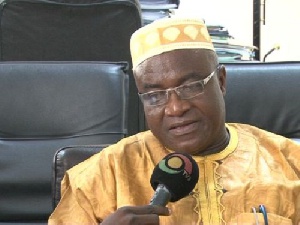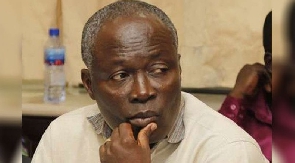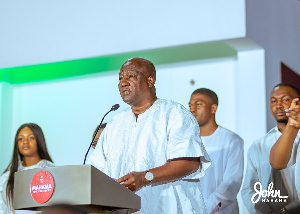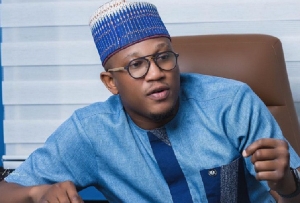The minority in parliament has said government defied their numerous warnings on the lopsided nature of the ENI agreement with the country.
According to the minority leader Osei Kyei-Mensah-Bonsu, the petroleum minister parried their concerns with claims that the Italian company was ditching the concession in Ghana for others in the African sub region.
The claims by the minority comes on the back of similar concerns by the opposition New Patriotic Party who have called for a review of the agreement.
In a statement after the visiting Italian Premier Matteo Renzi had addressed Ghana's parliament Tuesday, the minority said: “The Government of Ghana’s provision of financial terms to ENI and its partners of 20% return on investment, instead of the normal 12.5%, is an unusually high rate for commercial transactions of this nature, especially as GNPC assumes all the risk in the project.
“The negotiated gas price of $9.8/MMBtu for gas from the Sankofa fields is too high by world standards, of between $5-7/MMBtu. It is even higher than the price of gas sold to Ghana from Nigeria, which stands at $8.3/MMBtu, delivered at Takoradi. It is even more expensive than our own Atuabo Gas price of $8.8/MMBtu delivered at Takoradi. At the negotiated gas price of $9.8/MMBtu, it puts to great risk Ghana’s potential of becoming the Petrochemical hub of the region to Nigeria, due to that country’s lower gas prices”.
Speaking to Nii Arday Clegg on the Morning Starr Wednesday, the Suame MP said the ENI deal came to parliament with an executive approval and the minority could have done very little to change it.
“The ENI deal came to parliament with an executive approval and not a cabinet one. We pleaded for time as minority but the majority thought otherwise and voted in favour of the deal.
“We adhered to the signing of the deal because we had the interest of Ghanaians at heart given the circumstances. When critical issues were raised, the government side said Ghana was going to lose out so we had to seal the deal,” he said.
Click to view details



General News of Wednesday, 3 February 2016
Source: starrfmonline.com

















